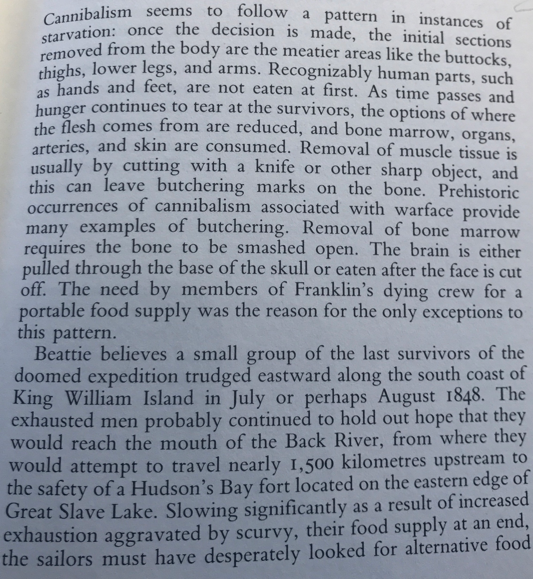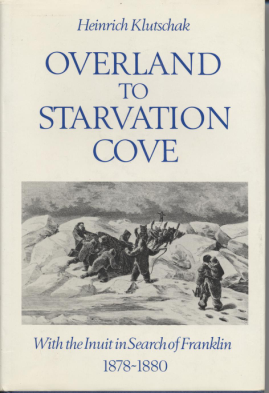- Greely, A.W. (Adolphus Washington). Papers, 1876-1973. (3 articles from the Boston Post) [Stefansson MSS-64, Box 1, 2]
 These Boston Post articles point to a changing role of the Arctic within the public sphere. As the allure of discovery seemed to fade, and the Northwest trade route continued to prove hard to navigate, the focus of Arctic explorers began to shift. Here, Greely leads a three-year expedition to Lady Franklin Bay to take various meteorological and scientific measurements. His outpost was the product of international cooperation between various countries, and reflected a changing general attitude towards the Arctic. Rather than mastery, Lt. Greely and his crew instead sought understanding.
These Boston Post articles point to a changing role of the Arctic within the public sphere. As the allure of discovery seemed to fade, and the Northwest trade route continued to prove hard to navigate, the focus of Arctic explorers began to shift. Here, Greely leads a three-year expedition to Lady Franklin Bay to take various meteorological and scientific measurements. His outpost was the product of international cooperation between various countries, and reflected a changing general attitude towards the Arctic. Rather than mastery, Lt. Greely and his crew instead sought understanding.
- Beattie, Owen, and John Geiger. Frozen in Time: The Fate of the Franklin Expedition. Vancouver: Greystone, 1998. [Stefansson G660 .B43 1987]
 This is a more present expedition that discusses how current technology was able to help in the discovery of two burials of seamen from Franklin’s ill-fated arctic expedition. Anthropologist Owen Beattie examines the bodies to understand the many horrors they faced as they lived out the last days of their lives. Many of these examinations helped find the answers to questions that were kept unknown for over 138 years. Beattie and his crew were able to use the well-preserved bodies to show evidence of starvation. Furthermore, as technology grows and the motivation to understand the Northwest Passage increases, past explorations will continue to become uncovered, and the truth of what many lost explorers went through will be revealed.
This is a more present expedition that discusses how current technology was able to help in the discovery of two burials of seamen from Franklin’s ill-fated arctic expedition. Anthropologist Owen Beattie examines the bodies to understand the many horrors they faced as they lived out the last days of their lives. Many of these examinations helped find the answers to questions that were kept unknown for over 138 years. Beattie and his crew were able to use the well-preserved bodies to show evidence of starvation. Furthermore, as technology grows and the motivation to understand the Northwest Passage increases, past explorations will continue to become uncovered, and the truth of what many lost explorers went through will be revealed.
- Klutschak, Heinrich. Overland to Starvation Cove: with the Inuit in Search of Franklin 1878-1880; translated and edited by William Barr. Toronto; Buffalo: University of Toronto Press, 1987. (book cover) [Stefansson G665 1878 .S4313 1987]
 This book highlights the huge impact the Inuit had on the discovery of many archeological finds regarding the Franklin crew. The relationship between the Inuit and the explorers/rescue teams is a unique one with an important place in the history and unfolding of this overall story. It is sure that without assistance from the indigenous peoples, many discoveries would not have been unearthed in the timeframe they were, and even still today may lie unrecovered, proving the importance of these peoples on the overarching storyline.
This book highlights the huge impact the Inuit had on the discovery of many archeological finds regarding the Franklin crew. The relationship between the Inuit and the explorers/rescue teams is a unique one with an important place in the history and unfolding of this overall story. It is sure that without assistance from the indigenous peoples, many discoveries would not have been unearthed in the timeframe they were, and even still today may lie unrecovered, proving the importance of these peoples on the overarching storyline.
- Schwatka, Frederick. The long Arctic search: the narrative of Lieutenant Frederick Schwatka 1878-1880, seeking the records of the lost Franklin expedition, edited Edouard A. Stackpole. Mystic, Conn.: Marine Historical Association, 1965. (illustration “Lieutenant Frederick Schwatka interviewing the natives”) [Stefansson G665 1878. S36]
 This account by Lieutenant Frederick Schwatka of his expedition to find lost papers from the Franklin expedition failed in its original mission, yet discovered other valuable treasures such as clothing and possessions of the Franklin crew. What is noteworthy is the Schwatka expedition’s interactions with the native Innuit people, respecting their knowledge and looking to them for advice rather than ignoring their local knowledge as past expeditions have done.
This account by Lieutenant Frederick Schwatka of his expedition to find lost papers from the Franklin expedition failed in its original mission, yet discovered other valuable treasures such as clothing and possessions of the Franklin crew. What is noteworthy is the Schwatka expedition’s interactions with the native Innuit people, respecting their knowledge and looking to them for advice rather than ignoring their local knowledge as past expeditions have done.